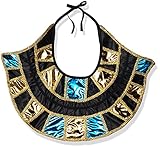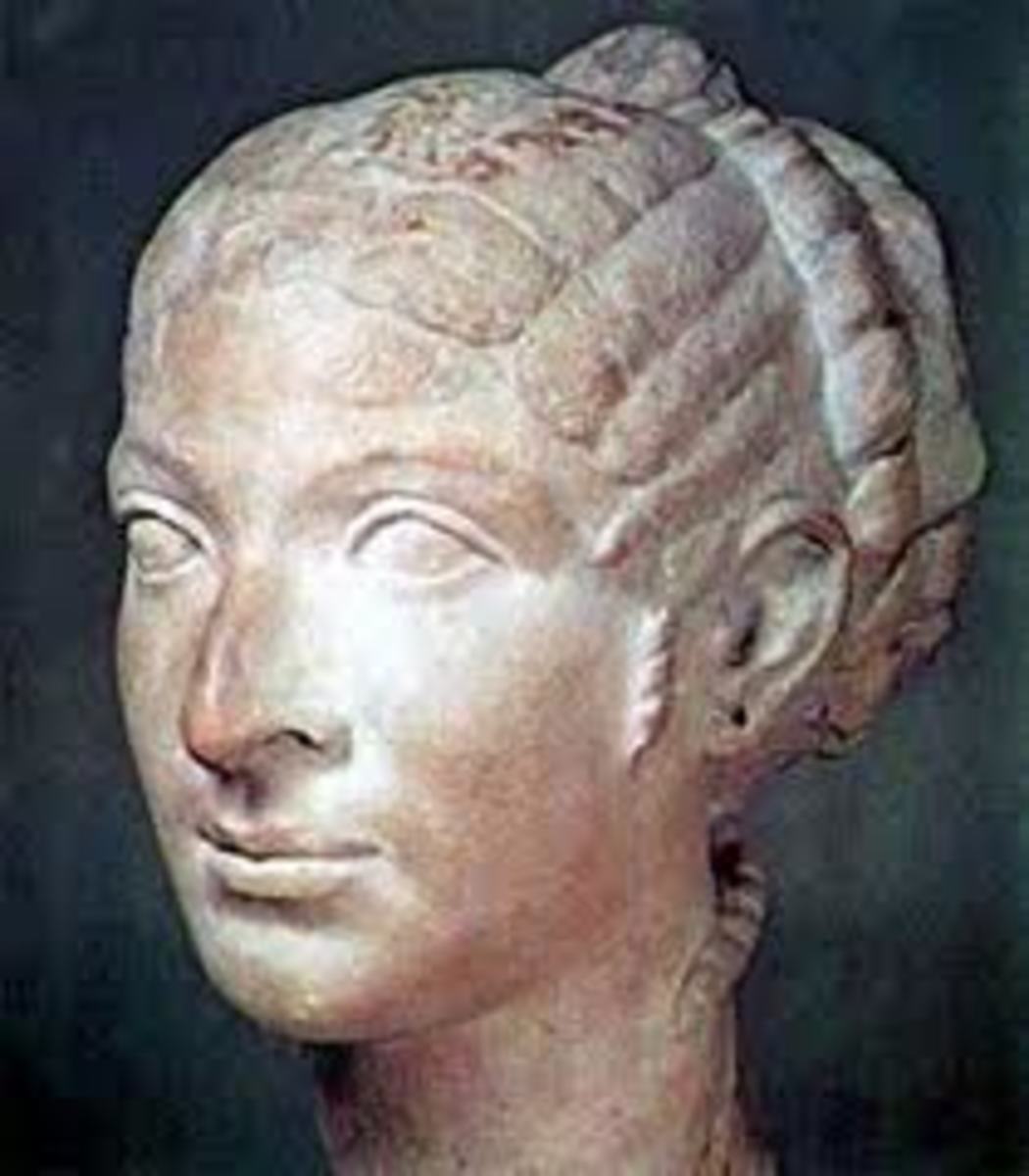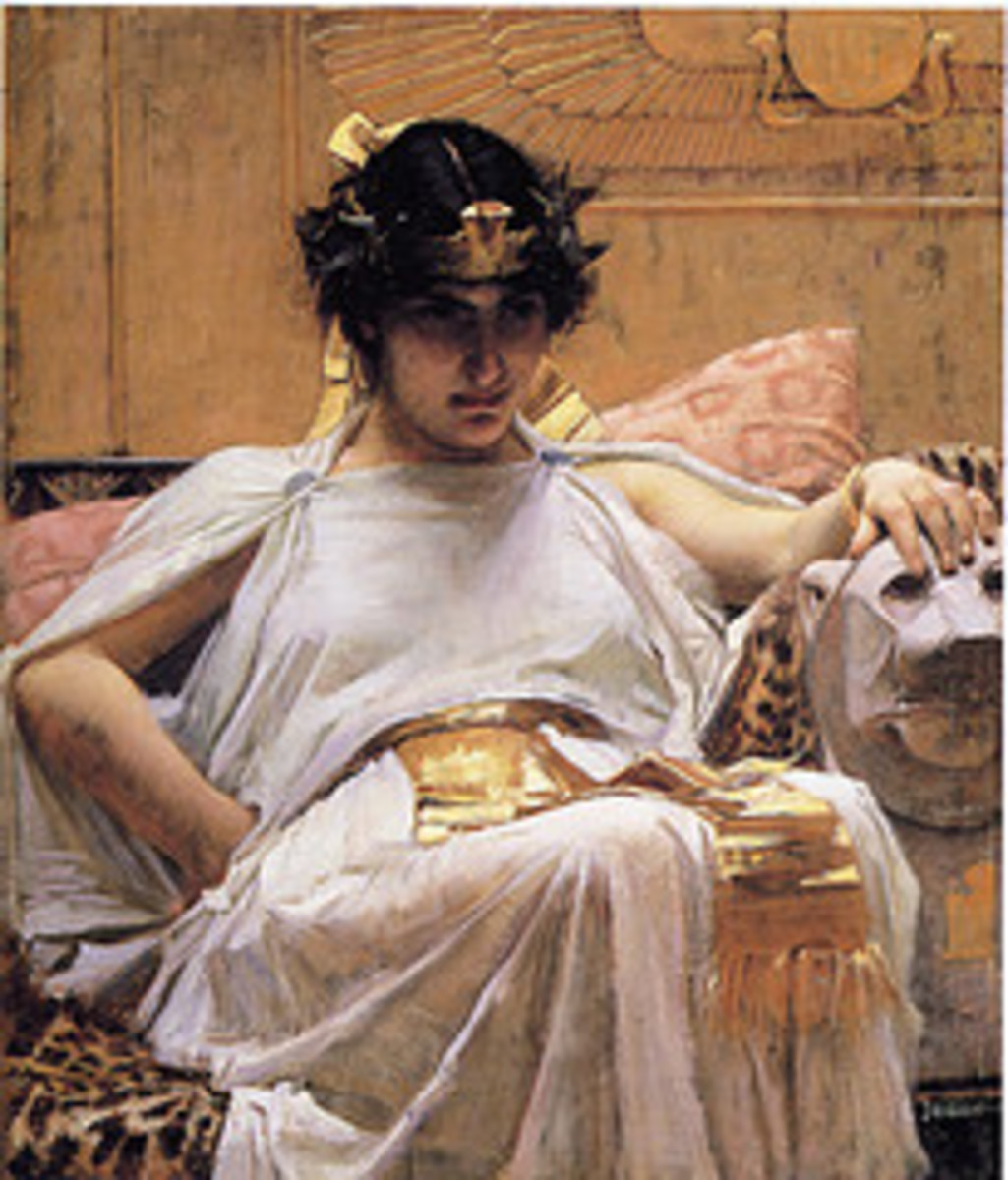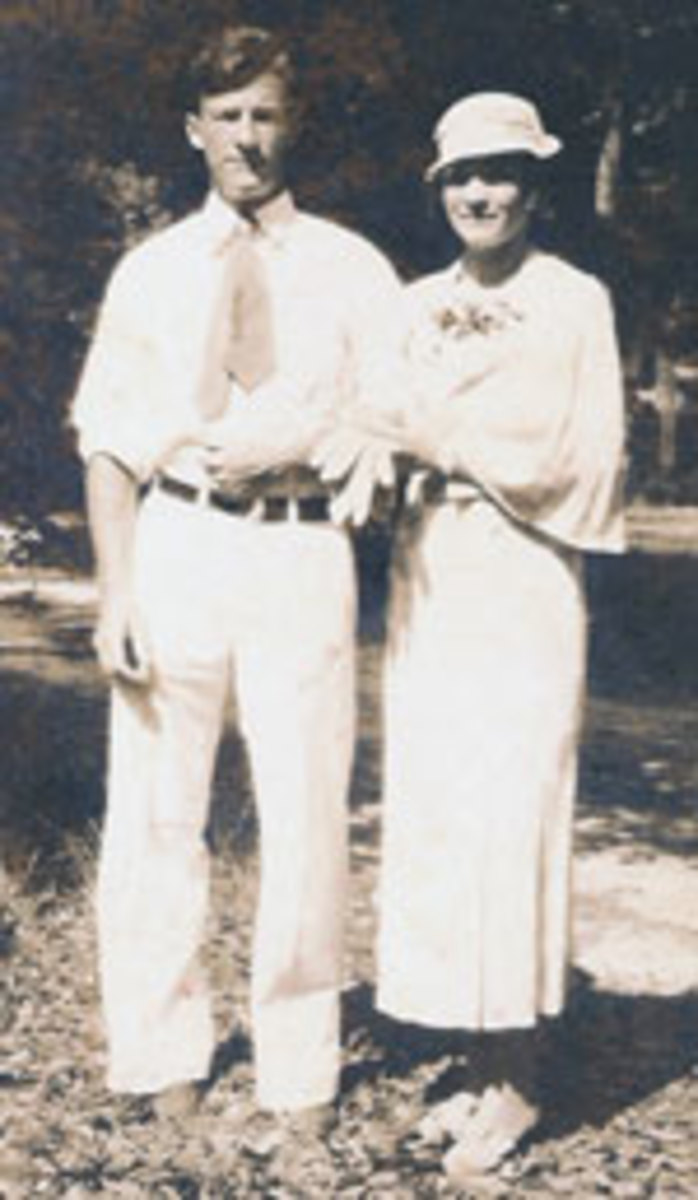- HubPages»
- Books, Literature, and Writing»
- Books & Novels»
- Nonfiction»
- Biographies & Memoirs
Cleopatra, a book by Stacy Schiff
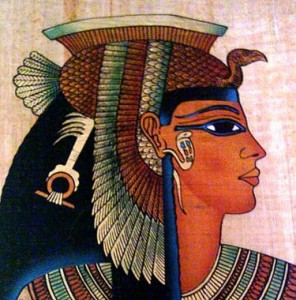
The most famous fictionalized character from history
Fascinating figures and times in history usually make for some of the most interesting stories. While the story of Cleopatra has gone down in history as one of the most mysterious and fascinating figures, precious little is known as fact. In those days late in the Egyptian empire, Roman poets and philosophers who had their own agendas and loyalties wrote most lasting historical records. Yet, with enough research a slightly clearer imaging of this powerful Queen, mother and leader emerges. For those just interested in the history of Cleopatra trying to decide if she was either one of the strongest female leaders in history or the grandest femme fatales, this book helps to unravel the complexity that is Cleopatra. For those looking for a fun story of history, this book is a complex and difficult read that lends more to teaching than education. Wonderfully researched and pervasive in its subject it provides no lacking of information on the time period and the character.
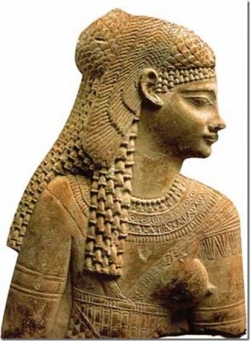
Femme Fatale or Brilliant Strategist
Looking at great civilizations throughout history, ancient Egypt certainly ranks as one of the most remarkable. This was a civilization that created vast engineering wonders while inspiring a diverse population over vast geographic distances for thousands of years. They invented such fundamental items as a comprehensive written language and ability to predict seasons. Some of their greatest cities of their day like Alexandria were Mecca's of learning and culture. With organized will laid out city planning, including a main avenue that was 91 feet across, vast temples, an immense light house that towered over the harbor, and a library to rival any in the world; this was a capital that put even Rome to shame. It was not just the physical landmarks that were beyond their time, but also the equality of sexes. Women were considered equal to men; able to demand their dowry back if their husband took up with another woman, to own property and lead businesses. In fact, it would not be unusual for women to lead the business while the husband tended the household. But not only did it empower women, but also held them up to a higher standard. "In first-century BC marriage contract, a bride promised to be faithful and affectionate. She further vowed not to add love potions to her husband's food or drink." In Roman culture, this backward thinking was as foreign as a river that flowed up not down. Alas, most of the physical monuments have been lost to the changing tides of history; all that remains are stories, drawings, and hopefully some of the attitudes toward women. Yet the stories of opulence and advanced thinking paint a picture that helps bring this city to life.
Steeped in religion their kings and queens engaged in some of the most bloodthirsty actions seen in history as they attempted to create themselves in the images of the Gods. In the days of Cleopatra it was expected that Egypt would be ruled by both a King and a Queen, yet unlike other monarchies, Egypt was one that readily accepted female leaders. Thus every King's Queen could be considered a potential rival. The practice of inter-marriage was considered both prudent and in reality a requirement to protect the throne from those family members that had eyes on advancement. Mothers married their sons, brothers and even grandsons, while at the same time arranging the murders of every sibling or parent who might compete for the throne. Cleopatra was no exception to this standard practice, however she took it to a new level given realities that existed in her day. No longer were the Egyptians the ultimate force in the world, now they were second to the Roman Empire Not only did Cleopatra have to worry about internal threats to the throne, but also the all-pervasive threat from Rome with its legions of soldiers and quest for expansion. It would be debated by many, but Stacy Schiff puts forth the belief that Cleopatra simply took the Egyptian tradition of marrying for stability to the next level by marrying to protect against internal competition while having affairs with Roman leaders to protect against the external threat.
It all began at an early age prior to a stable throne for Cleopatra when she was married to her brother as co-leaders. Alas, her brother had aligned the army against her and had issued orders to keep her from the capital city and kill her to rid him of his rival. She maneuvered around her brother/husband to throw herself to Caesar for his protection and create a tight alliance between Egypt and Rome. Ultimately she bared him a son that helped to tighten the alignment between the great empires, while ensuring Roman protection at a critical time in her reign enabled her to eliminate her competitors and secure her throne. When Caesar was killed she was able to seamlessly gain the protection of Mark Antony in a slightly different manner. With Caesar, she had no wealth or power and by some stories was brought to his palace hidden in a burlap sack. By the time of Mark Antony, she had vast power and wealth enabling her to seduce him not only by her person but also with treasure and luxury. She hosted banquets with gold tableware, furniture and precious jewels that were gifts to those who attended (imagine attending a party and then encouraged to take as much furniture as you desired home with you).
While Caesar was her lover it is debatable if there were strong feelings in either direction that could be classified as love. With Mark Antony, it could be easily argued that there were strong emotional bonds at least from Mark that certainly affected his ability to make good decisions. If this ultimately led to his downfall or would have happened anyway as a flawed character can be debated. Regardless, Cleopatra was able to navigate the rocky shoals of Egyptian and Roman politics for 22 years as the final true queen of Egypt. Ultimately it was Roman politics that led to her death. Octavian, Marks competitor following Caesar's death, openly challenged Mark Antony's ability and right to lead Rome using Cleopatra as an example. He led his troops after Mark Antony taking the fight all the way to Egypt where Mark Antony and Cleopatra were forced to commit a Romeo and Juliet style suicide. Following her death, Egypt became a Roman protectorate that led to its ultimate descent as a great power.
I picked up this book with high expectations and was unfortunately disappointed. Before progressing further, it is important to pay homage to the difficulty in the task set before Stacy in writing this book. Trying to determine fact from fiction of ancient history is difficult in the best of times. To do so with a character that has so much mythology interwoven and whose writers had strong agendas of their own, must have been staggeringly painful. However with all that said, I found the story to jump around throughout different time settings and not follow any logical time line as one would expect in a historical story. Jumping from Cleopatra's time line, to that of her father, over to her sister and then back amidst any one chapter damages the narrative and thought process. For one not familiar with Egyptian history or Cleopatra's story I believe it might be difficult to make it through this book. However, to go beyond the writing style and organization, the information thus laid out was clearly well researched and interestingly informative.
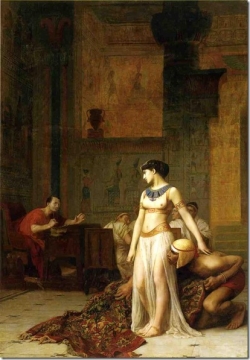
Favorite Quotes
"The art of speaker depends on much effort, continual study, varied kinds of exercise, long experience, profound wisdom, and unfailing strategic sense. It was elsewhere noted that this grueling course of study lent itself equally to the court, the stage, or the ravings of a lunatic"
"No one dances while he is sober, unless he happens to be a lunatic" --Cicero on the staid Roman culture
"O would that the female sex were nowhere to be found -- but in my lap" --Euripides
"Politics have long been defined as the systematic organization of hatreds"
"As the lion said to the man, 'there are many statues of men slaying lions, but if only the lions were sculptors there might be quite a different set of statues' -- Aesop's fables being used to interpret how history is written by the victors



